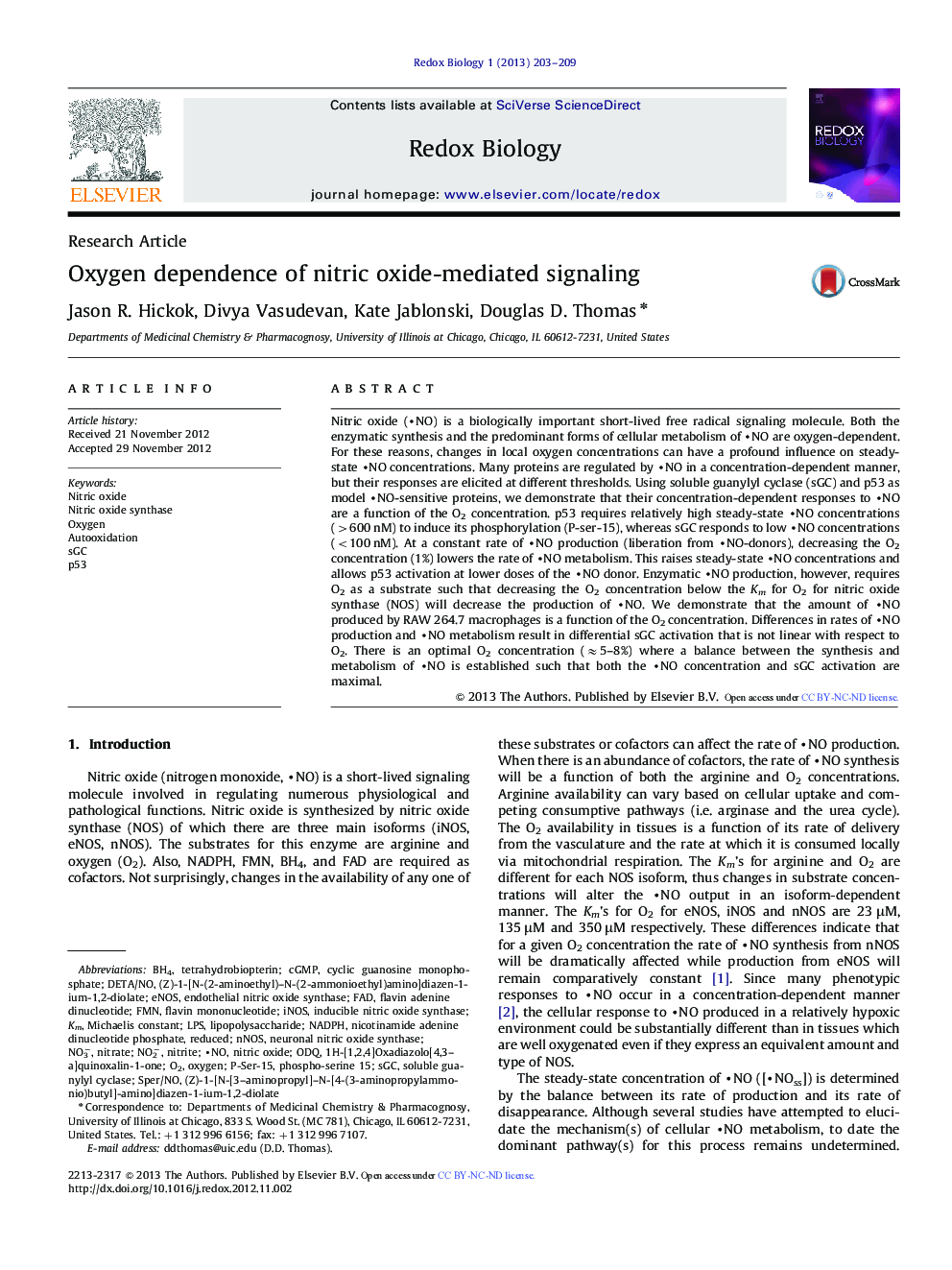| کد مقاله | کد نشریه | سال انتشار | مقاله انگلیسی | نسخه تمام متن |
|---|---|---|---|---|
| 1923245 | 1048882 | 2013 | 7 صفحه PDF | دانلود رایگان |

Nitric oxide (NO) is a biologically important short-lived free radical signaling molecule. Both the enzymatic synthesis and the predominant forms of cellular metabolism of NO are oxygen-dependent. For these reasons, changes in local oxygen concentrations can have a profound influence on steady-state NO concentrations. Many proteins are regulated by NO in a concentration-dependent manner, but their responses are elicited at different thresholds. Using soluble guanylyl cyclase (sGC) and p53 as model NO-sensitive proteins, we demonstrate that their concentration-dependent responses to NO are a function of the O2 concentration. p53 requires relatively high steady-state NO concentrations (>600 nM) to induce its phosphorylation (P-ser-15), whereas sGC responds to low NO concentrations (<100 nM). At a constant rate of NO production (liberation from NO-donors), decreasing the O2 concentration (1%) lowers the rate of NO metabolism. This raises steady-state NO concentrations and allows p53 activation at lower doses of the NO donor. Enzymatic NO production, however, requires O2 as a substrate such that decreasing the O2 concentration below the Km for O2 for nitric oxide synthase (NOS) will decrease the production of NO. We demonstrate that the amount of NO produced by RAW 264.7 macrophages is a function of the O2 concentration. Differences in rates of NO production and NO metabolism result in differential sGC activation that is not linear with respect to O2. There is an optimal O2 concentration (≈5–8%) where a balance between the synthesis and metabolism of NO is established such that both the NO concentration and sGC activation are maximal.
Graphical AbstractFigure optionsDownload as PowerPoint slideHighlights
►
► O2 regulates NO signaling by modulating NO synthesis and metabolism.
► O2 affects NO synthesis by regulating NOS expression and substrate availability.
► The rate of enzymatic NO production increases linearly from 1–8% O2.
► The rate of cellular NO metabolism increases with increasing [O2].
► NO-mediated sGC activation is maximal between 5% and 8% O2.
Journal: Redox Biology - Volume 1, Issue 1, 2013, Pages 203–209